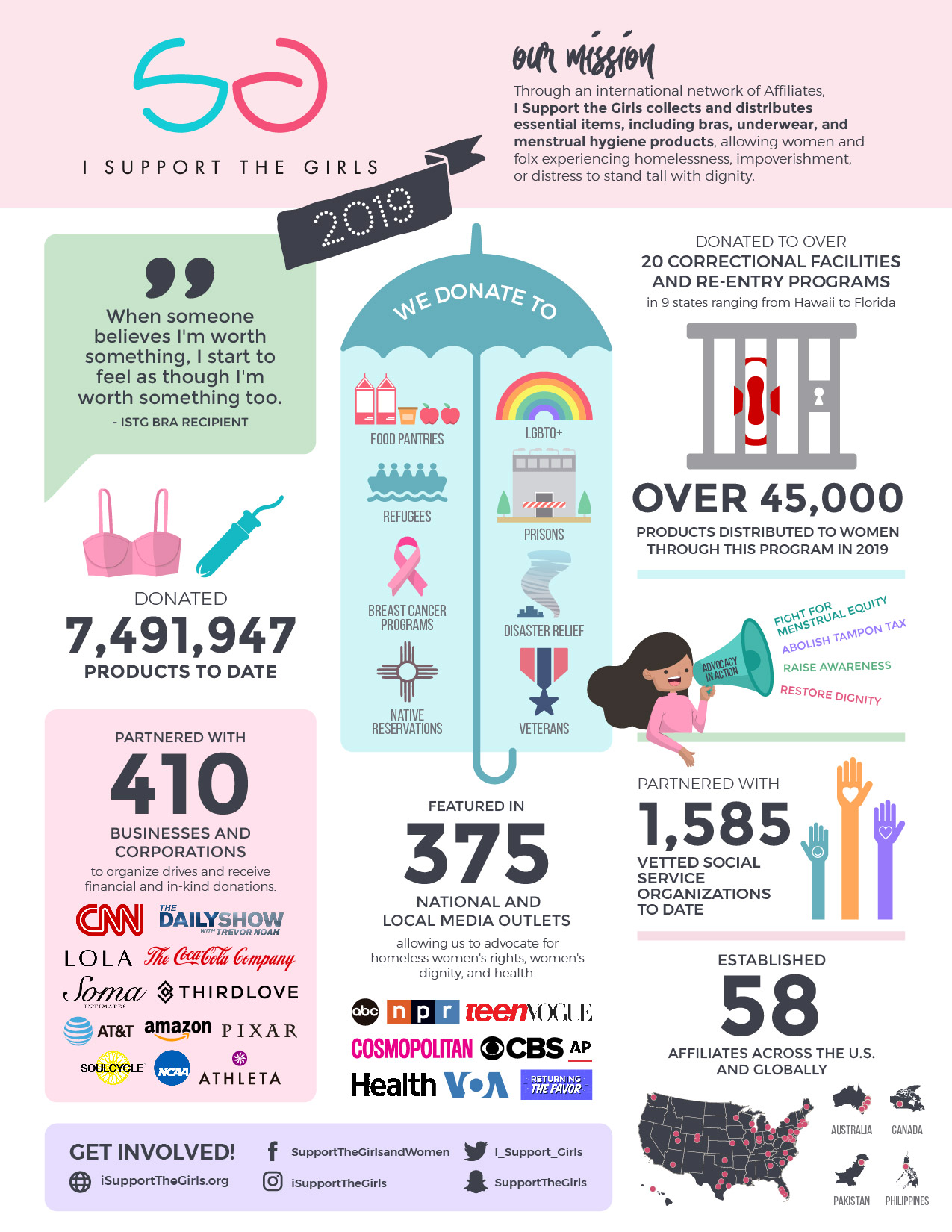
July 27, 2021
Period Poverty: What It Is and How to Help
Despite being a public health crisis that causes devastating physical and mental effects, period poverty goes unnoticed and unacknowledged far too often. That’s why the Busy Co team is so excited to launch our very first Period Poverty Campaign to help create new awareness to and invest in solutions for this incredibly important issue. Learn more about our partnership with I Support the Girls and how you can help bring period products like our feminine hygiene wipes to people in need here.

To get a better understanding of period poverty and who it affects, we talked with Administrative Manager and Marketing Associate of I Support the Girls, Christiana Littrell.
What is period poverty?
To understand the myriad of physical and psychological effects that period poverty can have on people, it’s important to first understand what period poverty is. While period products like pads and tampons are a basic need like water and electricity, for some they are an inaccessible luxury. What’s more, many lack education on how to deal with menstruation, along with access to washing facilities and means of disposing of period products. This is period poverty.
As Christiana explained, around 1.8 billion people globally don’t have access to resources or education on how to manage their periods in a dignified way. Up to 20% of school absences are a direct result of this lack of resources - and stigma - surrounding menstruation. What’s more, assistance programs like SNAP or WIC do not cover menstrual hygiene products, making it much harder for those under financial stress to meet their physical needs each month.
Who does it affect?
For many of us, easy access to period products is something taken for granted. But for people living on the margins, each month can start a new cycle of stress and anxiety. Of course, many of those experiencing period poverty are unhoused.
Christiana notes, "When people think of the needs of the homeless, they typically think of food, shelter, and clothing, but rarely consider the more intimate, and just as necessary, needs like pads, tampons and bras. However, I'm sure if you asked any person with a period if menstrual hygiene products are a necessity--it would be an obvious yes..."
It’s also important to note that periods don’t just affect women. Trans men and nonbinary folks can all experience menstruation and period poverty, making it essential that our conversations around this issue are inclusive of all people who menstruate.
How can I help?
Period poverty is a global issue inextricably linked to factors like class, wealth, and geography. That means that there is no one-size-fits-all solution to ending it. Instead, solving period poverty will require an intersectional, multisectoral approach that takes into account the specific needs and circumstances of each community. With that being said, there are still a variety of ways that you can help within your own communities.
One of the easiest ways you can help is by creating awareness! Start a conversation with someone, or share our campaign on your social media. If you have the means, you can also donate money or period products directly to organizations like I Support the Girls to be redistributed to those in need. And, if you’re looking to go the extra mile, consider volunteering to help conduct product drives and collections! No matter what your time and resource level may be, there’s a way for everyone to get involved! As Christiana said, "No one should ever have to choose between a maxi pad or a bra and their next meal.” Thankfully, there are a variety of ways that individuals and organizations like I Support the Girls alike can help “restore dignity” to people experiencing period poverty.